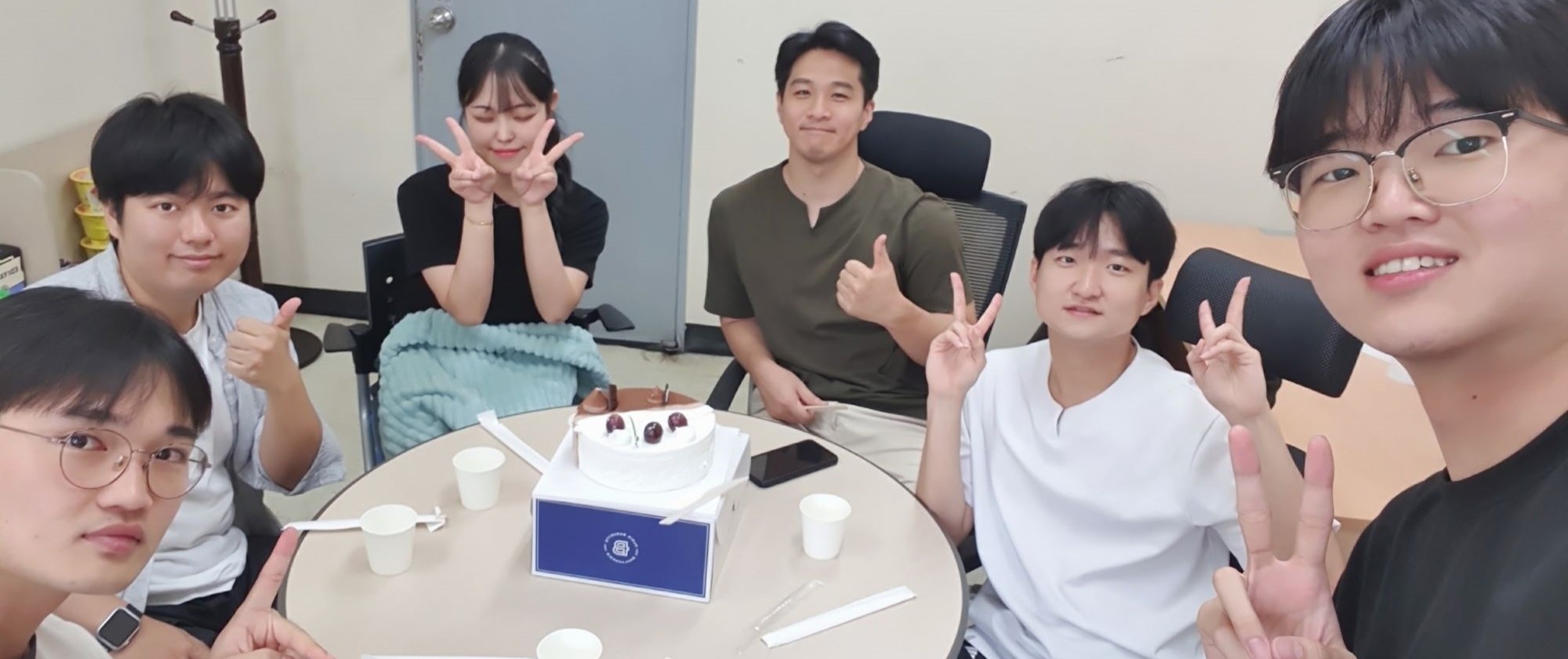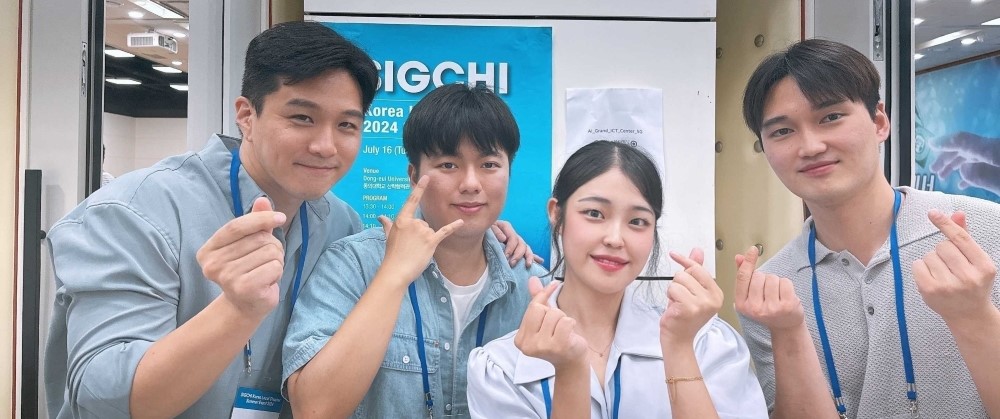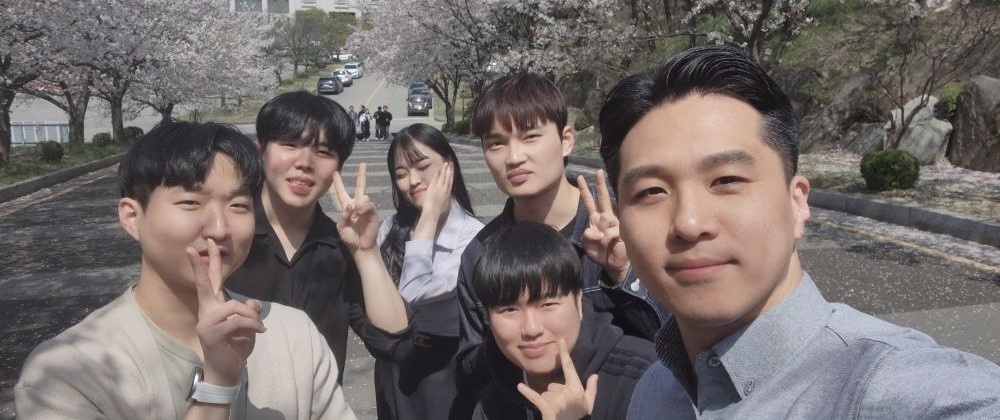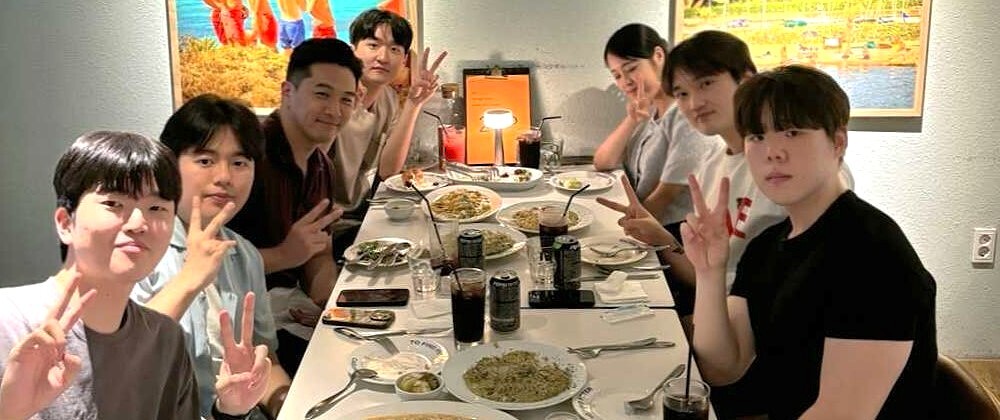# User Data Analysis
We explore users' behavior on various computer-supported systems. Based on the findings of the user behavioral data analysis, we can predict users' future behavior or mediate users' problematic behaviors.
# Social Computing
We analyze users' interactive and collaborative behavior on online systems such as social media (for example, Youtube and Twitter) or collaborative services (for example, GitHub and Wikipedia).
# AI & Intelligent System
We design and build novel intelligent systems to help people interact with AI or computers. We then explore new useful insights for future intelligent systems.
UXC Lab, User eXperience Computing Lab, is a data-drivn Human-Computer Interaction and User eXperience (Data-driven HCI/UX) research group focusing on user behavioral pattern analysis in the Department of Software Convergence at Kyung Hee University, led by Sangkeun Park.
Our HCI/UX research utilizes data-driven approaches to address various areas of Human-centered AI, Social Computing, and Intelligent System Design. We aim to improve the way people design systems and make decisions by exploring human behavioral patterns and designing novel intelligent systems.
NEWS
Encouragement Award at KCC2024 🏆
July 2024
We are delighted to announce that Cheolhyeon Han(한철현), an undergraduate student in our lab, has been awarded the Encouragement Award for his paper titled "Development of a Predictive Model for Personalized Video Playback Speed Based on Viewing Patterns" at the KCC2024 (한국컴퓨터종합학술대회).
Encouragement Award at KSC2023 🏆
Feb 2024
We are delighted to announce that Gunu Park(박건우), an undergraduate student in our lab, has been awarded the Encouragement Award for his paper titled "A Study of Short-Form Video Watching Patterns and a Predictive Model" at the KSC2023 (한국소프트웨어종합학술대회).
Oral Presentations at KCSE2024 🎓
Feb 2024
We are very proud that our undergraduate students in our lab, Eunnho Kim(김은호) and Cheolhyeon Han(한철현), presented two undergraduate student papers (one paper each) at KCSE2024 (한국소프트웨어공학학술대회).
KSC2023 Special Achievement Award 🏆
Dec 2023
We are excited to announce that Professor Park has won the Special Achievement Award at the KSC2023 (한국소프트웨어종합학술대회) for publishing 9 papers.
NRF Research Grant (June 2023 ~ February 2025) 💰
June 2023
We are happy to announce that we have won a new research grant, Basic Science Research Program, from the National Research Foundation of Korea (NRF). We will be studying Mobile Interaction Receptivity Prediction Model based on Users' Context.
Top 1% Reputations in 2022 on StackOverflow ⭐
January 2023
Sangkeun Park has actively participated in Q&A on StackOverflow and earned top 1% reputations in 2022. His main area covers #Python and #Pandas
Lab Opened! 🏛️
September 2022
It is very exciting to announce that the the lab is newly launched with an assistant professor, Sangkeun Park.
I Want You! 🤗
We are actively looking for highly motivated undergraduate students and graduate students who are interested in research of data-driven Human-Computer Interaction and User eXperience (HCI/UX) using AI/ML.
If you are interested in working with me, feel free to email me with your CV to sk.park (a) khu.ac.kr.
Faculty

Sangkuen Park | 박상근
📧 sk.park (a) khu.ac.kr
🏠 Personal Homepage
Graduate Students | 대학원생

Jaehwan Kim | 김재환
📅 2023.09 ~ .
📧 jhwankim (a) khu.ac.kr
🏠 Personal Homepage
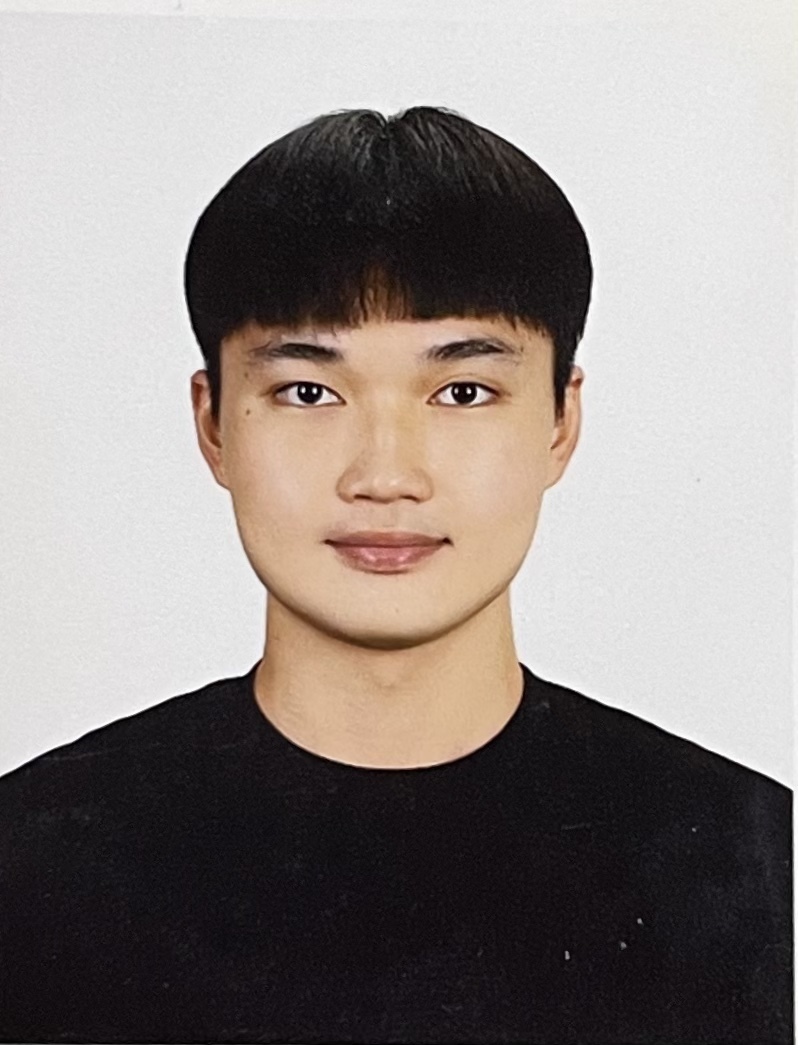
Eunnho Kim | 김은호
📅 2024.03 ~ .
📧 taemin4u (a) khu.ac.kr
🏠 Personal Homepage

Minjeong Cha | 차민정
📅 2024.03 ~ .
📧 minjeongcha (a) khu.ac.kr
🏠 Personal Homepage
Undergraduate Students | 학부연구생

Intae Ji | 지인태
📅 2024.05 ~ .
📧 jit0309 (a) khu.ac.kr
🏠 Personal Homepage

Jeongwon Kim | 김정원
📅 2024.09 ~ .
📧 micky4 (a) khu.ac.kr
🏠 Personal Homepage

Inhyuk Song | 송인혁
📅 2024.12 ~ .
📧 thddlsgur0105 (a) khu.ac.kr
🏠 Personal Homepage

Chaeyeong Kim | 김채영
📅 2024.12 ~ .
📧 cdfv (a) khu.ac.kr
🏠 Personal Homepage
HALL OF FAME: Alumni & Former Members
PDF URL
2021. Proceedings of the SIGCHI Conference on Human Factors in Computing Systems (CHI ’21)
Joonyoung Park, Hyunsoo Lee, Sangkeun Park, Kyong-Mee Chung, Uichin Lee.
User-driven intervention tools such as self-tracking help users to self-regulate problematic smartphone usage. This paper proposes GoldenTime, a mobile app that promotes self-regulated usage behavior via system-driven proactive timeboxing and micro-financial incentives framed as gain or loss for behavioral reinforcement. We conducted a large-scale user study (n = 210) to explore how our proactive timeboxing and micro-financial incentives influence users’ smartphone usage behaviors.

PDF URL
2020. IEEE Access
Vol 8 (June 2020). IEEE
Joohyun Kim, Sangkeun Park, Uichin Lee.
Vehicle dashboard cameras or dashcams, among other smart vehicle technologies, are increasingly attracting interest across the globe. Furthermore, dashcam videos as objective witnesses are often shared to resolve various traffic incidents. In this work, we aim to understand cross-national differences in motives and privacy concerns of dashcam video-sharing, which are closely related to the factors that vary across countries, such as cultural values, traffic regulation, driving environments, and privacy perception.
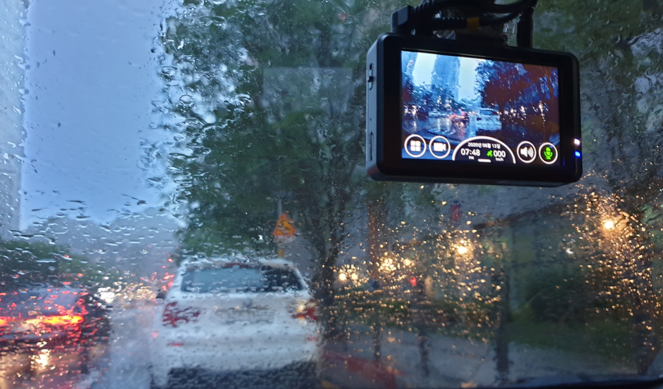
PDF URL
2019. Journal Proceedings of the ACM on Interactive, Mobile, Wearable and Ubiquitous Technologies (IMWUT)
Vol 3, Issue 2, Article No. 39 (June 2019). ACM
Woohyeok Choi, Sangkeun Park, Duyeon Kim, Youn-kyung Lim, Uichin Lee.
We built BeActive, a mobile intervention system for preventing prolonged sedentary behaviors. We collected users' responses taking into account relevant contextual factors such as: what they were doing, where they were, and whom they were with, for three weeks. Using a multi-stage model, we systematically analyzed the responses to deepen our understanding of the receptivity of the JIT intervention.

PDF URL
2018. Journal Proceedings of the ACM on Human-Computer Interaction (PACMHCI)
Vol.2, Issue CSCW, Article No. 134 (November 2018). ACM
Sangkeun Park, Sujin Kwon, Uichin Lee.
What do you think of community safety? In this study, we designed a community-sourced patrolling campaign in which community members would schedule their patrol times and routes, perform bike-based patrolling with video capturing and share the information using their smartphones. We conducted a four-week field study (n=20) on a university campus to verify the campaign's feasibility and observe users' behavior. The results show key findings about users’ task scheduling, event capturing and reporting behaviors, factors affecting task selection and execution, and user motivation and engagement.
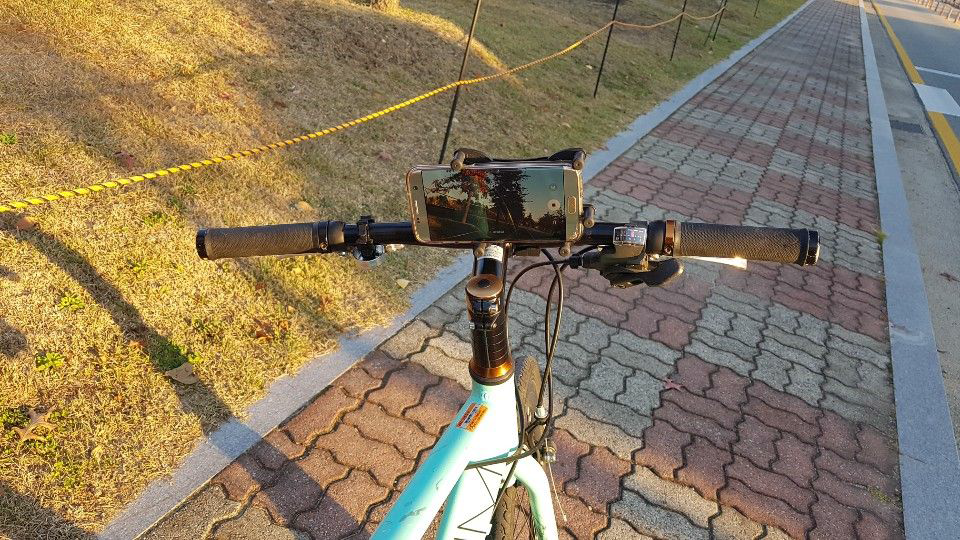
PDF URL
2018. Journal Proceedings of the ACM on Human-Computer Interaction (PACMHCI)
Vol.2, Issue CSCW, Article No. 30 (November 2018). ACM
Yoonjeong Cha, Jongwon Kim, Sangkeun Park, Mun Yong Yi, Uichin Lee.
On computer-mediated communication, stickers or GIFs, though similar in appearance to emoji, have distinct characteristics because they often contain animation, various gestures, and multiple characters and objects. Their complexity and placement constraint may result in miscommunication. In this study, we aim to understand how people perceive emotion in stickers, as well as how miscommunication related to sticker occurs in actual chat contexts via online survey and interview.
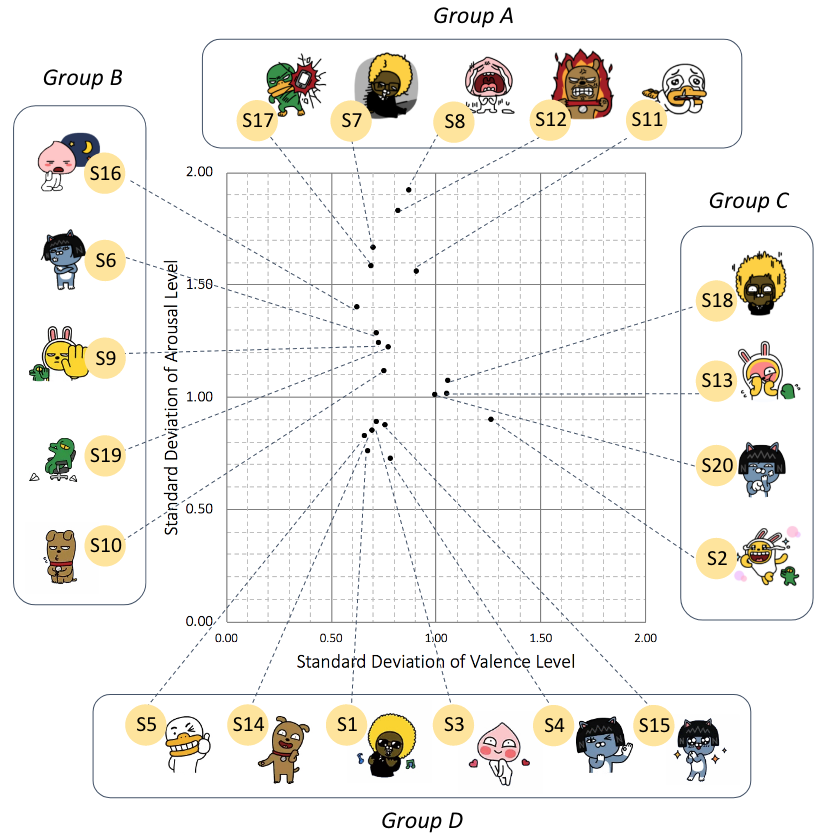
PDF URL
2018. ACM Transactions on the Web (TWEB)
Volume 12, Issue 3, Article No. 16 (July 2018)
Sangkeun Park, Mark S. Ackerman, Uichin Lee.
In location-based social Q&A services, people ask a question with a high expectation that local residents who have local knowledge will answer the question. Besides, questions are classified by regions rather than topics, unlike existing topic-based Q&A services. We analyzed a 12-month period Q&A dataset from Naver KiN "Here," a popular location-based social Q&A mobile app in South Korea, in addition to a supplementary survey dataset obtained from 285 mobile users.
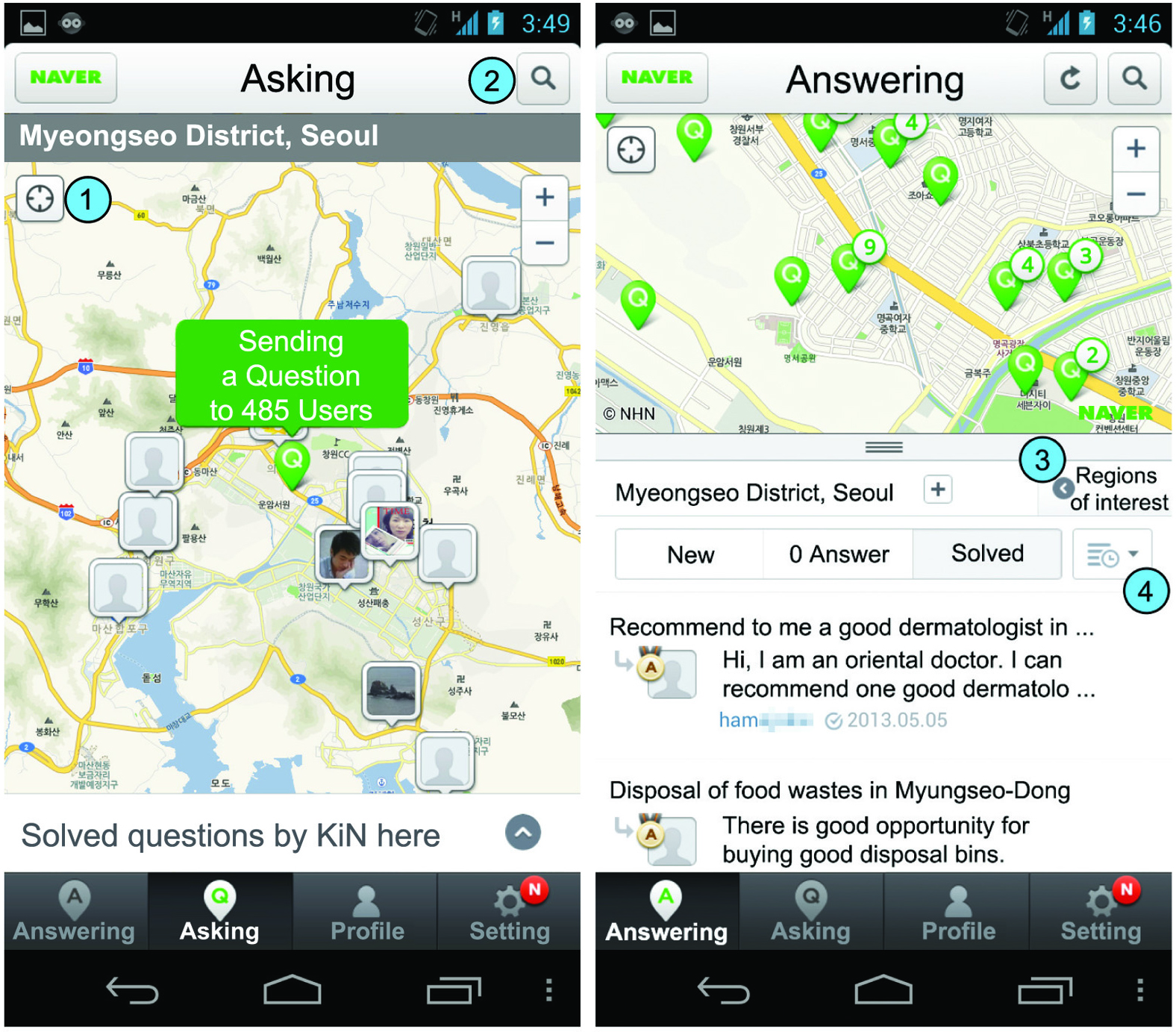
PDF URL VIDEO
2017. Proceedings of the SIGCHI Conference on Human Factors in Computing Systems (CHI ’17)
Sangkeun Park, Emilia-Stefania Ilincai, Jeungmin Oh, Sujin Kwon, Rabeb Mizouni, Uichin Lee.
We often see various traffic violations on the road while driving. In this study, we consider community policing on the road with pervasive recording technologies. We developed a mobile app so that drivers can easily capture and report various threats to traffic safety to the police via mobile apps. Our two-week user study showed that the mobile app effectively supported community policing activities on the road.
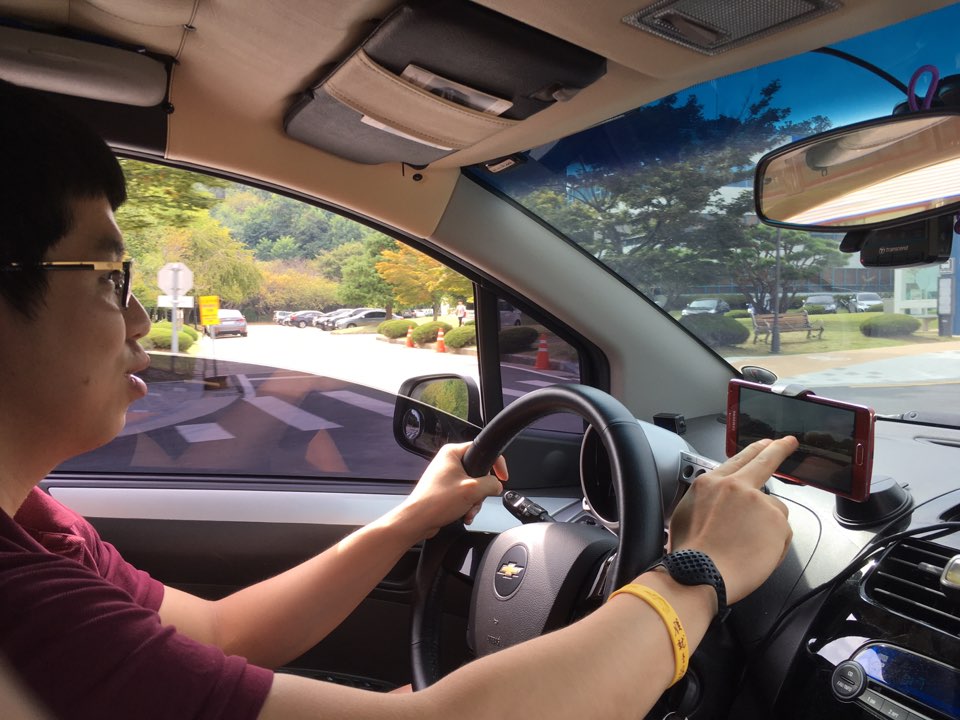
PDF URL
2017. Proceedings of the 2017 CHI Conference Extended Abstracts on Human Factors in Computing Systems
Hyojin Chin, Hengameh Zabihi, Sangkeun Park, Mun Yong Yi, Uichin Lee.
What if your parent knows your bad driving habits? Bad driving behaviors are a major cause of traffic accidents, many of them resulting in fatalities. Our study intends to encourage safe driving habits by increasing drivers' self-awareness about their driving habits, as well as receiving supportive feedback on their driving behavior from a loved one as an intervention method. We built an Android prototype app to deliver feedback for bad driving maneuvers to both drivers themselves and to their corresponding supporters and conducted a field study evaluation.
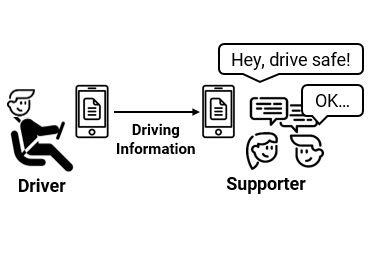
PDF URL VIDEO
2016. Proceedings of the SIGCHI Conference on Human Factors in Computing Systems (CHI ’16)
Sangkeun Park, Joohyun Kim, Rebab Mizouni, Uichin Lee.
Dashcams support the continuous recording of external views that provide evidence in case of unexpected traffic-related accidents and incidents. Recently, the sharing of dashcam videos has gained significant traction for accident investigation and entertainment purposes. Furthermore, there is a growing awareness that dashcam video sharing will significantly extend urban surveillance. Our work aims to identify the major motives and concerns behind the sharing of dashcam videos for urban surveillance.
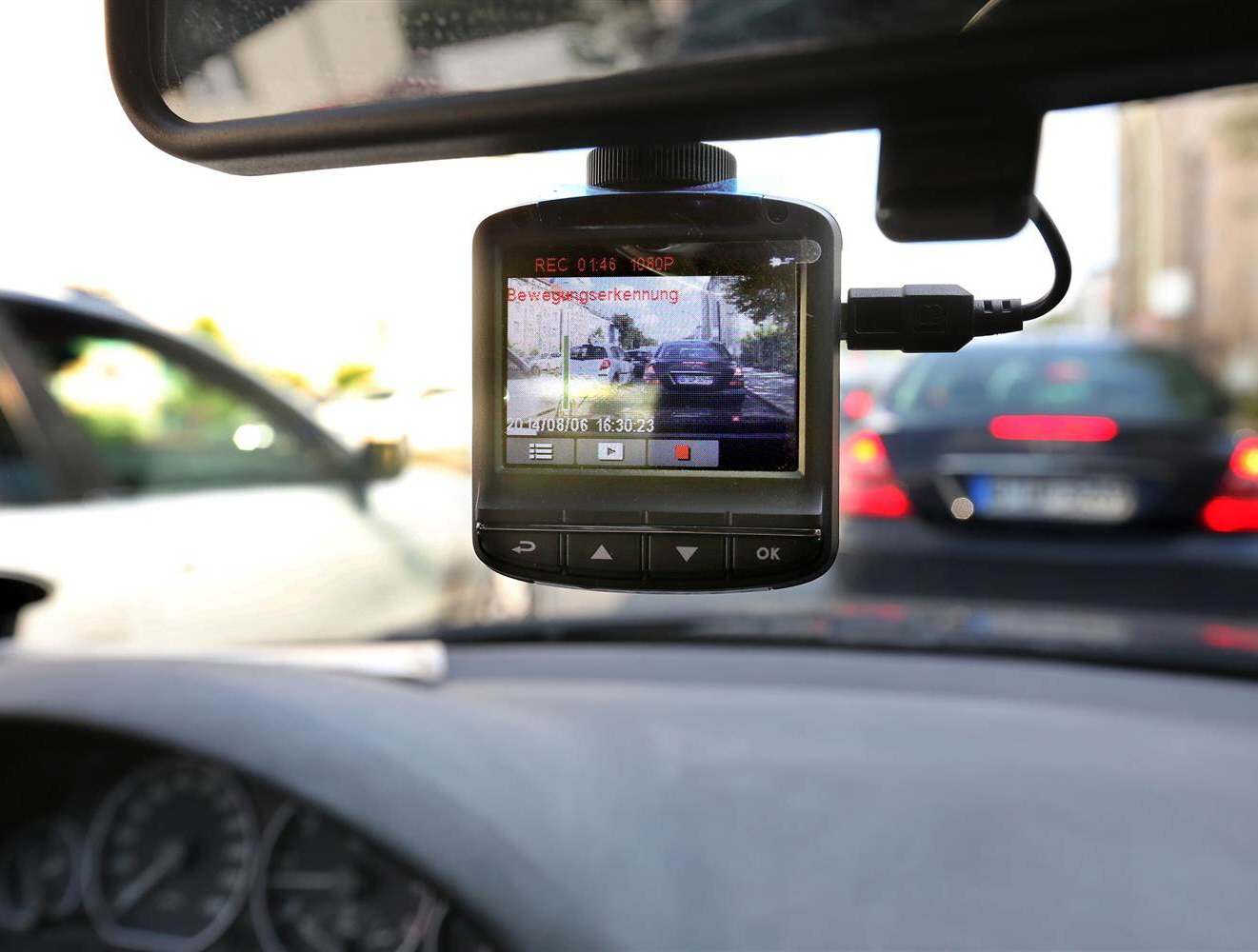
PDF DOI POSTER
2016. Proceedings of the 2016 CHI Conference Extended Abstracts on Human Factors in Computing Systems
Jiwon Jung, Suski Yoon, SeungHyun Kim, Sangkeun Park, Kun-Pyo Lee, Uichin Lee.
Uber and Airbnb, two well-known sharing economy services, are facing conflicts with traditional taxi and hotel companies because these services have monetary benefits but are free from legacy regulations. However, non-monetary-based sharing services, represented by Couchsurfing, Inc., are free from such conflict and still successful. We investigated the distinctive user participation motivation of non-monetary-based sharing services versus monetary-based ones.
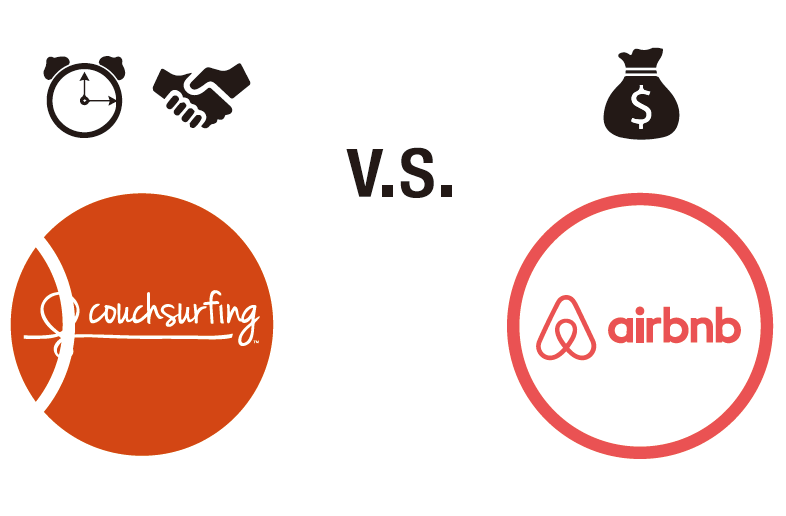
PDF DOI POSTER VIDEO
2016. Proceedings of the 2016 CHI Conference Extended Abstracts on Human Factors in Computing Systems
Juyoun Kim, Yoochan Kim, Sangkeun Park, Uichin Lee.
Our goal was to design a tool that can facilitate Q&A activities in offline presentations. We first identified several problems associated with current offline Q&A practices. We then developed SlideQA, an online slide-based Q&A tool, and explored its usability.
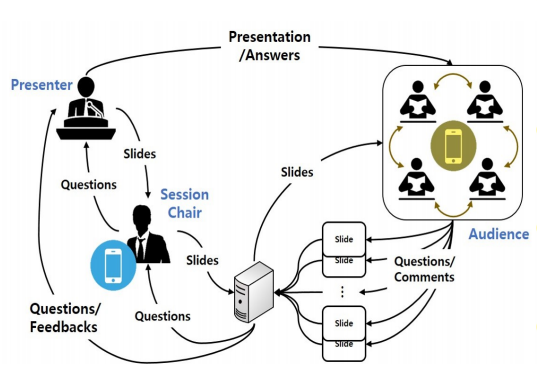
PDF URL
2014. Proceedings of the ACM International Conference on Human-computer Interaction with Mobile Devices & Services (MobileHCI '14)
Sangkeun Park, Yongsung Kim, Mark S. Ackerman, Uichin Lee.
In location-based social Q&A, the questions related to a local community (e.g., local services and places) are typically answered by local residents. We wanted to deepen our understanding of the localness of knowledge sharing through investigating the topical and typological patterns related to the geographic characteristics, geographic locality of user activities, and motivations of local knowledge sharing. To this end, we analyzed a 12-month period Q&A dataset from Naver KiN "Here" and a supplementary survey dataset from 285 mobile users.
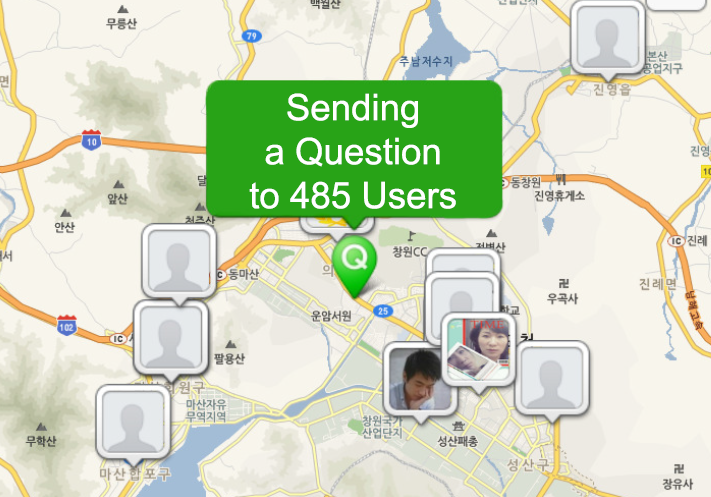
PDF URL
HCI Korea 2016 (Extended Abstract)
Juhyun Kim, Sangkeun Park, Uichin Lee, Rabeb Mizouni.
Dashcams support the continuous recording of external views and help drivers to guard against unexpected accidents and incidents. Recently, sharing dashcam videos has gained significant traction for accident investigation. However, current sharing requests are being made in aninefficient way through online communities. By analyzing 52 sharing request postings from past three years in the existing online community site, we extracted main factors for service implementation, then designed an on campus dashcam video sharing system.
PDF URL
HCI Korea 2015 (Extended Abstract)
Taehwa Oh, Sangkeun Park, Uichin Lee, Wanchul Yoon.
To analyze compus research Q&A behavior of graduate students, we conducted focus group interviews with graduate student of KAIST in Korea. We analyzed the interview data with a grounded theory approach and organized the results by using a framework inspired by activity theory. The result indicated that campus research Q&A behavior of graduate students has theree main themes: 1) the absence of campus research community and the difficulty of Topic expert search, 2) the closed lab culture and the burden for personal question, 3) the dispersed knowledge problem and the absence of collaboratoin. We interpreted three main themes as Korean culture and suggested design guidelines: 1) Campus comprehensive search, 2) Offering detail information of labs/researchers, 3) Supporting online interest group.
PDF URL
Korea Computer Congress 2014
Sangkeun Park, Jeeyeon Choi, Key-Sun Choi.
To analyze compus research Q&A behavior of graduate students, we conducted focus group interviews with graduate student of KAIST in Korea. We analyzed the interview data with a grounded theory approach and organized the results by using a framework inspired by activity theory. The result indicated that campus research Q&A behavior of graduate students has theree main themes: 1) the absence of campus research community and the difficulty of Topic expert search, 2) the closed lab culture and the burden for personal question, 3) the dispersed knowledge problem and the absence of collaboratoin. We interpreted three main themes as Korean culture and suggested design guidelines: 1) Campus comprehensive search, 2) Offering detail information of labs/researchers, 3) Supporting online interest group.
Web and Python Programming | 웹/파이선프로그래밍 (SWCON104)
2022 ~ present
- Time: Tuesday 13:00-14:50 / Thursday 13:00-14:50
- Room: #205, College of Electronics & Information
Applied Data Analysis | 응용데이터분석 (SWCON372)
2024 ~ present
- Time: Monday 15:00-16:15 / Wednesday 15:00-16:15
- Room: #103, College of Electronics & Information
Social System Design and Analysis | 소셜시스템디자인및분석 (SWCON7033)
2024 ~ present
- Time: Thursday 15:00-17:45
- Room: #309, College of Electronics & Information
Data Analysis Capstone Design | 데이터분석캡스톤디자인 (SWCON321)
2024 Fall
- 리스펙존 - 욕설과 혐오 없는 깨끗한 공간 | 소프트웨어융합학과 유혜지, 김건형, 체육학과 이민재
- TermCorrector: STT에서의 전공 용어 교정 서비스 | 소프트웨어융합학과 한주상, 한지훈, 선신욱
- 패션 스마트 서치 | 소프트웨어융합학과 임성은, 이시온, 스페인어학과 최용빈
- 영상을 통한 우울 감지 서비스 | 소프트웨어융합학과 이제희, 최보경
2024 Spring
- 스마트워치에서의 사용자 말투 기반 답장 제안 서비스 | 🏆 2024 SW중심대학연합 SW페스티벌 우수상 | 소프트웨어융합학과 박건우, 정성호, 김유환
2023 Fall
- 사용자 정보를 바탕으로 한 백준 알고리즘 문제 추천 서비스 | 🏆 2023 KHU SW페스티벌 대상 | 소프트웨어융합학과 노명은, 임정우, 한상진
- 쇼핑몰 리뷰 알바 필터링 시스템 | 🎓 KCSE2024 논문 출판| 🏆 2023 KHU SW페스티벌 우수상 | 산업경영공학과 한철현, 권세빈
- 마켓 메이킹을 활용한 초과 수익 찾기: SolTrade | 소프트웨어융합학과 허준수, 김두종
- 필기 및 문서 요약 서비스 - WriteNow | 🎓 KCC2024 논문 출판 | 🏆 2024 KCC2024 장려상 | 소프트웨어융합학과 김민아, 김민석
- PAWSITIVE TRANSFORMATIONS | 🎓 KCC2024 논문 출판 | 소프트웨어융합학과 김지혁, 오민준, 유전공학과 엄현지
- 실시간 스트리밍 동영상에 대한 자막생성 & 송출 | 소프트웨어융합학과 신현서, 김찬
2023 Spring
- 자연어 처리를 활용한 메신저 정보습득 서비스 | [데모 영상] | 소프트웨어융합학과 문지원, 지은주, 최진유
2022 Fall
- 필루미 - 계층적 이미지 분류 모델을 이용한 알약 식별 및 복약 안내 서비스 | 🏆 2022 KHU SW페스티벌 우수상 | 소프트웨어융합학과 박재훈, 박수빈
- 마약 범죄 판례 조회 서비스 | 정치외교학과 이윤섭, 산업경영공학과 김기호
- 금융 위기기간 중 안전 자산 기능 검증 및 최적고정포트폴리오 비중 제시 | 경제학과 김동인, 산업경영공학과 김태영, 소프트웨어융합학과 문성집
Software Convergence Capstone Design | 소프트웨어융합캡스톤디자인 (SWCON401)
2024 Fall
- AlgoMate: 개인 맞춤형 알고리즘 피드백 | 소프트웨어융합학과 정성호
- 오픈소스 이슈 검색 서비스 | 소프트웨어융합학과 김유진
- 나만의 스마트폰 중독 방지 서비스 | 철학과 안채연
- 리뷰 속 유사 사용자 기반 맞춤형 화장품 추천 서비스 | 유전생명공학과 류여진
2024 Spring
- Private-Con: 이용약관 개인정보 시각화 프로그램 | 소프트웨어융합학과 김민석
- 또방: 재방문율 분석을 통한 가게 평가 시각화 | 🎓 KSC2024 논문 출판 | 소프트웨어융합학과 김민아
- KoELECTRA 모델을 이용한 성희롱 댓글 탐지 모델 개발 | 소프트웨어융합학과 김민환
- 소리 인식 기반 차량 접근 경고 시스템 | 🎓 KSC2024 논문 출판 | 소프트웨어융합학과 김지혁
- 유튜브 혐오 썸네일 필터링 | 🎓 KSC2024 논문 출판 | 소프트웨어융합학과 김찬
- RAG를 활용한 대화형 장소 추천 서비스 | 소프트웨어융합학과 노명은
- 영상 내 잔혹 콘텐츠 자동 필터링 시스템 | 🎓 KSC2024 논문 출판 | 🏆 2024 SW중심대학연합 SW페스티벌 창의상 | 소프트웨어융합학과 손지원
- 유튜브 동영상의 욕설 필터링 및 대체 | 🎓 KSC2024 논문 출판 | 소프트웨어융합학과 신현서
- 유사 판례 기반 뉴스 기사 판결 분석 | 🎓 KSC2024 논문 출판 | 소프트웨어융합학과 이정원
- 코드 작성 기록 시각화 및 리뷰 시스템 | 산업경영공학과 이지호
- 사용자 의류 기반 코디, 제품 추천 서비스: 산다 Clothes | 소프트웨어융합학과 한상진
- 영상 시청 패턴 기반의 개인화 동영상 재생 속도 예측 모델 개발 | 🎓 KCC2024 논문 출판 | 🏆 2024 KCC2024 장려상 | 산업경영공학과 한철현
2023 Fall
- AD Finder : 네이버 광고성 블로그 리뷰 탐지 프로그램 | 🎓 KCC2024 논문 출판 | 식품영양학과 조민서
- 배드민턴 스윙 자세 진단 서비스 | 🎓 KCC2024 논문 출판 | 소프트웨어융합학과 유창현
- 유튜브 댓글 뷰어 시스템 | 소프트웨어융합학과 구태형
2023 Spring
- 눈 피로도 관리 어플리케이션 | 🎓 KSC2023 논문 출판 | 소프트웨어융합학과 이준범
- 키워드 기반 영화/드라마 리뷰 상세 분석 서비스 | 🎓 KSC2023 논문 출판 | 소프트웨어융합학과 최보영
- 필루미 v2 - 딥러닝 모델을 이용한 알약 사진 검색 서비스 | 🎓 KSC2023 논문 출판 | 소프트웨어융합학과 박수빈
- 피싱 방지를 위한 대화 패턴 분석 시스템 | 🎓 KSC2023 논문 출판 | 소프트웨어융합학과 박준희
- CCC - 보기쉬운 유튜브 자동자막 제공 서비스 | 🎓 KSC2023 논문 출판 | 산업경영공학과 노현
- Reward Challenge - 소셜 기반 목표 설정 및 달성 기록 서비스 | 🎓 KSC2023 논문 출판 | 산업경영공학과 임정훈
- NearTube - 이웃이 주로 보는 유튜브 영상 추천 서비스 | 소프트웨어융합학과 고대훈
- Sleep Now! - 수면 직전 스마트폰 사용 중재 서비스 | 🎓 KCC2024 논문 출판 | 소프트웨어융합학과 유종석
- SIDE STAR - 음식 이름 기반 맛집 검색 서비스 | 소프트웨어융합학과 엄현지
- LookAtMe - 시선 트래킹 기반 이러닝 집중도 기록 서비스 | 산업경영공학과 서정민
2022 Fall
- Local Taste - 현지인 기반 음식점 추천서비스 | 🏆 2022 KHU SW페스티벌 최우수상 | 소프트웨어융합학과 강민석
- 사용자 데이터 기반 소셜 유튜브 추천 | 🎓 KSC2023 논문 출판| 산업경영공학과 김의석
- Webtoon Recommender - MBTI기반 웹툰 추천 서비스 | 소프트웨어융합학과 이도현
- ScreenDetox - 친구들과 함께하는 스마트폰 중독 방지 앱 | 소프트웨어융합학과 이경은
📅 Office Hours
- By appointment
- sk.park (a) khu.ac.kr
🏢 Lab address
- [Eng] #314, College of Software Convergence, Kyung Hee University. 1732, Deogyeong-daero, Giheung-gu, Yongin-si, Gyeonggi-do, Republic of Korea.
- [Kor] 경기도 용인시 기흥구 덕영대로 1732. 경희대학교 국제캠퍼스 전자정보대학(소프트웨어융합대학). 3층 314호.
